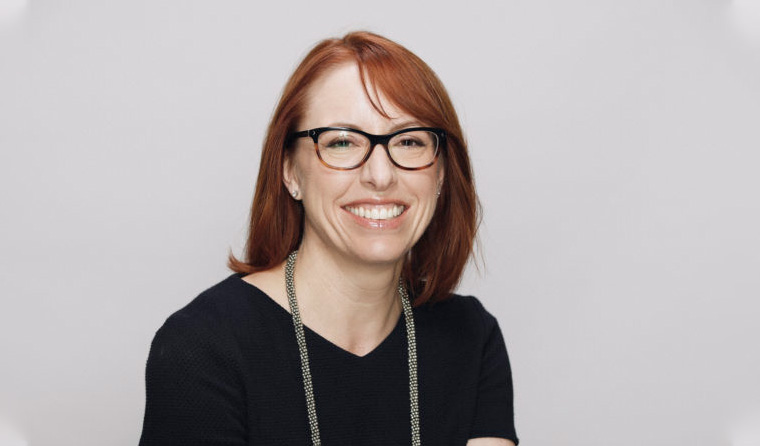News
Groundbreaking ECHO model at ‘tipping point’ of acceptance
A global telementoring program training GPs in underserved areas is seeing major growth in Australia, with the RACGP and many hospitals signing up.
 The ECHO model is designed to overcome the worldwide divide in access to hospital-based specialists between city and country.
The ECHO model is designed to overcome the worldwide divide in access to hospital-based specialists between city and country.
The RACGP will use the Project ECHO model for the first time in March with the launch of its new Alcohol and Other Drugs (AOD) GP Education Program, with six more ECHO hubs expected to launch next year.
The model is designed to overcome the worldwide divide in access to hospital-based specialists between city and country, and demonopolise medical knowledge by giving GPs access to specifically tailored telementoring.
Under the ‘all teach, all learn’ model, GPs in underserved areas present difficult clinical cases to a panel of GPs with special interests, hospital specialists and other healthcare professionals and their peers, followed by workshopping.
The head of Australasia’s first ECHO superhub, GP Dr Dana Newcomb, told newsGP the model represents ‘at a real tipping point’.
‘It works in Australia because of our geography and the distances patients have to travel for treatment. People in most states have now heard about it … [I]t will take off next year,’ she said.
‘I am so excited the RACGP has become an ECHO hub – that’s massive news. If ECHO becomes driven by GPs, then it will really take off and we’ll really start to see the benefits.
‘It’s such a learner-centric model, and GPs are the learners.
‘If we can get together to say, “This is what we need. These are the gaps in care where I work”, and set up ECHOs for them, we’ll see great outcomes.’
Dr Newcomb, who is the integrated care director at Children’s Health Queensland Hospital and Health Service, told GPs at last weeks’ GP19 conference about her hospital’s successful use of the model, as part of a plenary session with ECHO founder, Professor Sanjeev Arora.
The model has spread rapidly after an influential 2011 New England Journal of Medicine study found hepatitis C care provided by ECHO-trained primary care doctors and hospital specialists was of very similar standard.
‘After that study was published, there was a snowballing of interest in the model,’ Dr Newcomb said.
Professor Arora founded Project ECHO – which stands for Extension for Community Healthcare Outcomes – in 2003 in an effort to tackle long wait lists for hepatitis C treatment.
A 2018 Internal Medicine Journal study from the first Australian ECHO hub at Sydney’s Liverpool Hospital found the model is ‘an effective model’ to support GPs, with similar rates of hepatitis C treatment uptake and cure between GPs and hospital specialists.

GP and Project ECHO advocate Dr Dana Newcomb believes telementoring is a game changer.
Dr Newcomb began using the model to address the ‘clinically unacceptable’ wait times in many Queensland hospitals for access to general paediatric care for common issues such as ADHD.
‘We have legislation in Queensland allowing GPs to prescribe stimulants [for ADHD], but historically they haven’t done so,’ she said.
After strong positive feedback from a first ADHD-related course, the health service began rolling out broader behavioural and mental health ECHO modules.
‘You need to pick your specialists … but if you get the right ones who see the bigger picture, who see the waiting lists and gaps in care, they’re your specialists [for ECHO],’ Dr Newcomb said.
According to Dr Newcomb, while there are major benefits for rural GPs, doctors in underserved metropolitan areas can also benefit.
‘I work in Logan. It’s half an hour from Brisbane’s CBD, but there’s real poverty, intergenerational trauma and cultural barriers to access, coupled with long waiting lists,’ she said. ‘Patients there have terrible access, so it can help any underserved region.
‘There’s lots of evidence ECHO leads to increased satisfaction and joy at work. It helps with retention of doctors in rural areas, because it’s a really social model.
‘It’s fun to be part of – you feel connected, supported and get that professional advice.’
Interest in Australia is rising as a way to tackle the persistent health gap between the seven million people living outside of major cities and towns and their urban counterparts.
That gulf is due in part to a lack of access to hospital-based specialists, who tend to cluster in major cities.
Recent Australian Institute of Health and Welfare data shows the number of specialists significantly declines the further you get from major cities, with hospital-based specialists dropping from 145 per 100,000 population to just 22 in very remote areas. This has traditionally meant rural and remote patients face long waits.
The ECHO model’s goal is to democratise medical knowledge and overcome the rural–urban health gulf by bringing specialist knowledge to primary care doctors, rather than forcing patients to travel long distances to city-based practitioners.
Melbourne GP Dr Paul Grinzi, who will be involved with the AOD training, told newsGP the ECHO model was chosen because it ‘works so well for GPs’.
‘Attending an ECHO session doesn’t require a rural GP to leave their community and it is much more interactive then attending a webinar,’ he said.
‘As a GP, it’s like being in a room full of your peers and being able to access expert mentoring support. Together you help each other to find better ways to treat your complex patients.’
Other current models include the Victorian Opioid Management ECHO, designed to overcome a persistent shortage of doctors involved in opioid substitution therapy.
Cape York GP Dr Will Horwood recently asked whether ECHO would work well with the ongoing push for
rural generalist GPs.
ECHO model rural health telehealth
newsGP weekly poll
As a GP, do you use any resources or visit a healthcare professional to support your own mental health and wellbeing?